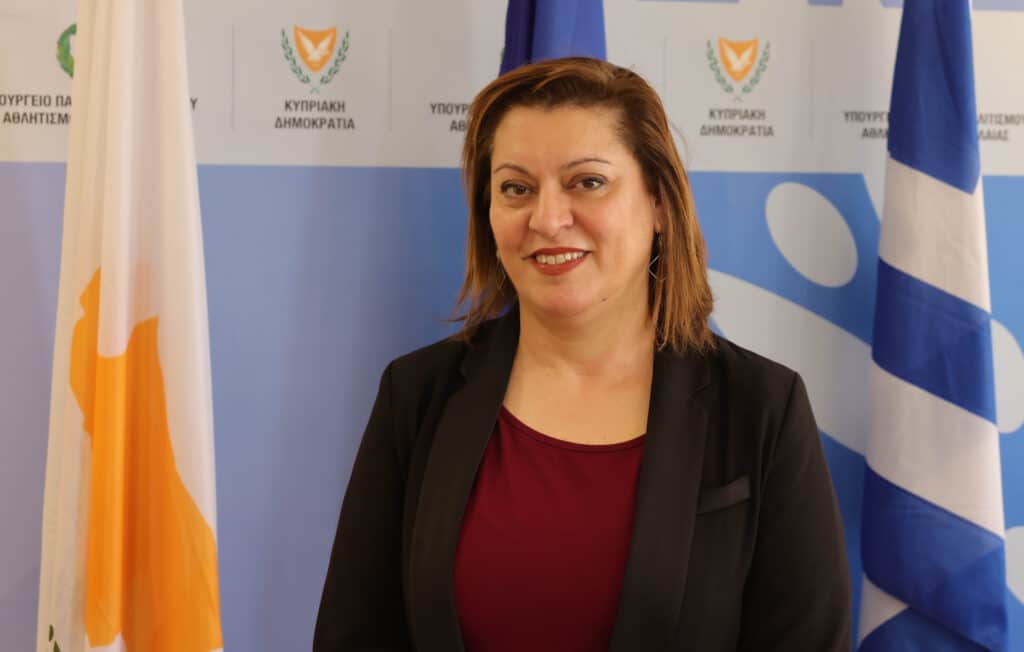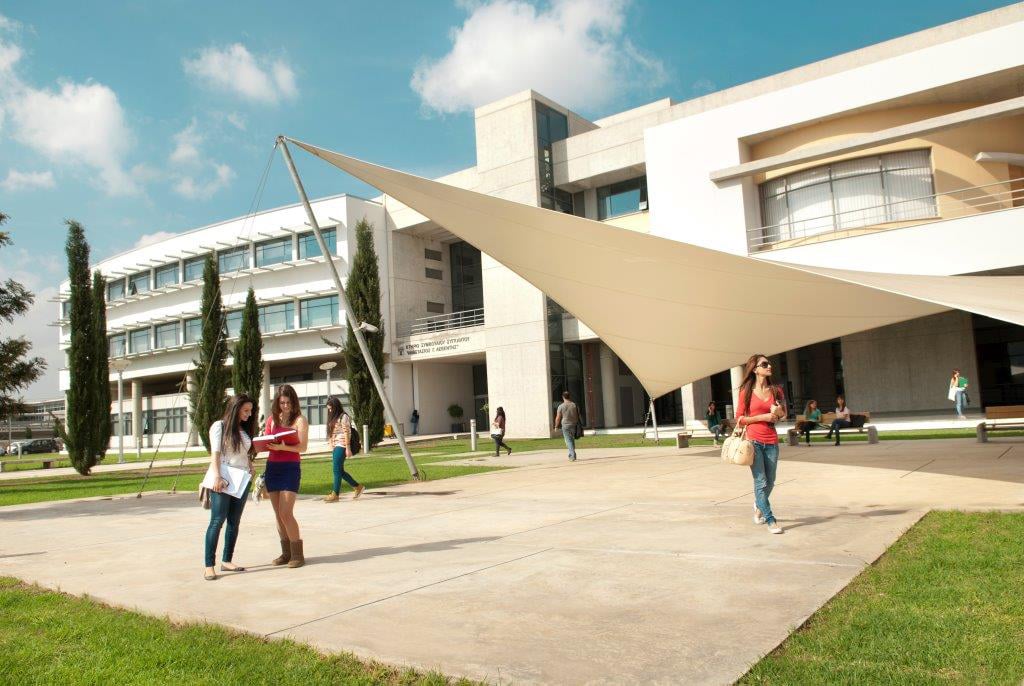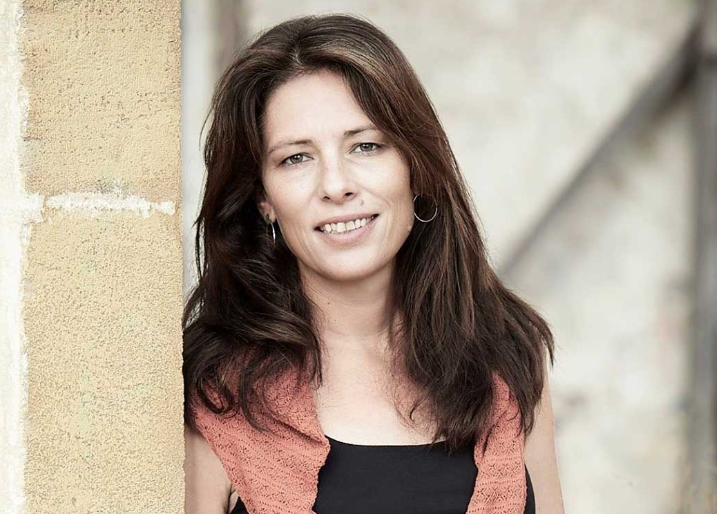Almost a year into her post, the education minister is keen to see schools become more inclusive and public universities to offer courses in English
Upgrading the island’s education systems through the modernisation of schools both public and private and making them contemporary and inclusive has been one of the priorities of education minister Dr Athena Michaelidou since her appointment almost a year ago.
“As in public education, so in private, our pursuit is to have modern, student-centred and inclusive schools, where every student will be given the opportunity to cultivate his/her talents, skills and abilities to the fullest, through flexible pedagogical methods and modern teaching approaches,” she says.
At the core of this initiative is the amendment, where necessary, of relevant legislation, with the aim of a more efficient operation of private schools and the strengthening of their control mechanisms to ensure quality education and reliability of their diplomas.
Consultations are also ongoing for the preparation of regulations regarding the admission of final-year students from private schools to public universities. efforts are also being made to provide textbooks for private schools and for their participation in competitions/research and in teacher trainings programmes.

Education minister Dr Athena Michaelidou
Since the beginning of her tenure, Michaelidou has taken up the long-standing issue of introducing undergraduate programmes in English at Cyprus’ public universities. “Based on their existing legal framework, public universities can offer postgraduate study programmes in foreign languages, with or without programmes simultaneously provided in one of the official languages of the Republic of Cyprus,” she says.
All three public universities offer postgraduate programmes in English to attract foreign students as well as Cypriots. Universities decide their criteria for admission and their postgraduate programme tuition fees, which, must be approved by the Council of Ministers.
But undergraduate programmes in foreign languages at present are only provided by the Open University of Cyprus, which Michaelidou says goes some way to attracting foreign students.
“Undoubtedly, offering foreign language undergraduate study programmes will contribute to the goal we have set as a state for the internationalisation of higher education in Cyprus and the transformation of our country into an international and regional centre of education and research.
“It is among our priorities to promote foreign language undergraduate study programmes at other universities. For the University of Cyprus and Cyprus University of Technology (Tepak) to be able to offer these programmes, regulations must be approved by the House of Representatives, which will regulate the admission criteria for students in said programmes and how tuition fees are determined,” explains Michaelidou.
SCHOOLS GUIDE 2024
The interior ministry has, during the previous administration, submitted relevant draft regulations to the House for this purpose, which were discussed at the education committee but no decisions were passed to the plenum for approval. “We hope the draft regulations will be discussed again and if necessary, as a ministry, we will make modifications in cooperation with all agencies involved, so as to regulate the issue for the benefit of both universities and Cypriot society,” Michaelidou says.
Looking ahead for younger students, Michaelidou says her office is already working on implementing actions so that the new school year begins with changes and improvements. “Specifically, working groups are going ahead with the updating of educational material for necessary revision and modernisation.
“We are also in the final stage of discussions, which began last October, on the evaluation and mprovement of special education, with the aim of transitioning to inclusive education. We also consider the development of students’ digital skills as very important and are promoting the digital transformation of our school units,” she adds.
The upgrading of technical and vocational education and training is also in the pipeline, along with the upgrading of higher education which falls in line with the minister’s aspirations to turn Cyprus into a quality and attractive academic destination.
Addressing disparity between the skills being provided to pupils and the demands of the labour market, Michaelidou refers to the development of a National Graduate Tracking Mechanism and Design and Implementation of an Employers’ Skills Survey, which is currently being implemented by the ministry within the framework of the EU’s Recovery and Resilience Plan.
The project includes the planning and conducting of two national surveys: the National Graduate Monitoring Survey and the National Employer Survey, as well as the participation of the ministry in two cycles of the European Eurograduate Monitoring Survey, in 2022 and 2026. “The data and results of the three surveys will be channelled to various policy bodies, as well as to the higher education institutions of Cyprus to review the content and design of new study programmes so that graduates acquire the knowledge and skills required by the labour market,” she adds.
For now, the ministry is working on increasing the amount of time spent in school by expanding the provision of free pre-primary education to children aged four years old and up to a total of 22,500 children in public preschools, and a total of 12,500 children in community preschools.
This is also a project of the National Recovery and Resiliency Plan. “The project has a great pedagogical value, as all our children will have the opportunity to attend two years of pre-primary education free of charge. At the same time, a social benefit is also achieved, since parents/guardians are given the opportunity to join or rejoin the labour market more smoothly,” explains Michaelidou.
The proposal provides for free attendance at public and community kindergartens and will be implemented gradually, starting from the upcoming academic school year 2024-2025. “From the coming school year, the age limit will be extended by two months downwards, so instead of four years and eight months, we will accept children in public and community kindergartens from four years and six months and gradually we will reach four years old”. It is estimated that these institutions will have to be expanded to deal with an increased number of children.







Click here to change your cookie preferences